Spinoza, Lao Tzu, and the Divine Nature of Matter
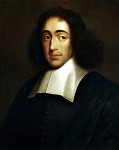
Baruch Spinoza
In my article “Science and Faith on the Path to Equilibrium,” I mentioned Baruch Spinoza (1632-1677), the author of a wide-ranging metaphysical system that influenced and still influences great thinkers. “I do not know why it [matter] should be considered unworthy of the divine nature, inasmuch as besides God no substance can be granted . . . . Wherefore it can in nowise be said, that . . . extended substance is unworthy of the divine nature, even if it be supposed divisible, so long as it is granted to be infinite and eternal,” pointed out the renowned philosopher.
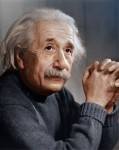
Albert Einstein
On April 29, 1993, I wrote in my column for the Correio Braziliense newspaper that for quite a long time matter was considered an obstacle to the Spirit. However, it will no longer be so, as we start to realize and respect its superior function. . . .
The problem is not in matter, or in its remains after the reform of Physical Science introduced by Einstein (1879-1955), but rather in how it is used by humankind.
Planet of Appearances
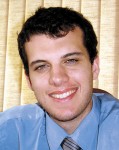
Juliano Bento
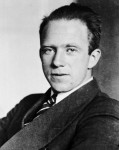
Heisenberg
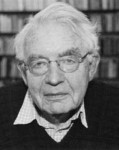
Casimir
The greatest evil that still hinders excessively skeptical brains from envisaging horizons in the sphere of the Spirit is to want to accept facts exclusively from the absolutely physical point of view. They forget that “Everything” is actually subject to the action of the Sublime Powers. These Powers place us in a condition that is distinct from the one that petrified minds have as legitimate probability, since that perspective, however, is nothing but delirium. What is understood as inexistent is actually real. It is no longer scary the discovery, in the Quantum Mechanics, that “emptiness” is a reality. High-end Science has already defined atom as, most of all, empty. But what does “empty” mean? Brazilian physicist Juliano Carvalho Bento, who honors me with his reading and audience, commented on the subject: “Today Science proves that we can observe the existence of energy remains in physical ‘nothingness,’ that is, in absolute vacuum (which in itself is not detectable in Nature, since it only exists under ideal conditions). According to classical physics, such energy remains can’t happen. That was only verified after Quantum Mechanics, since if such total vacuum existed, it would be opposing Heisenberg’s Uncertainty Principle, which shows evidence that minimum energy must exist, due to this physical postulate, the basis for Quantum Theory. The so-called Casimir effect was proof of this, when it was detected that two neutral, parallel metallic plates are attracted in vacuum due to the force that comes from vacuum energy. The alleged ‘nothingness’ hides a lot. As Jesus, the Ecumenical Christ, the Divine Statesman, tells us in His Gospel as in Matthew 10:26: ‘There is nothing concealed that will not be disclosed, or hidden that will not be made known.’”
How Visibility Acts in Invisibility
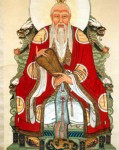
Lao Tzu
In Tao Te Ching, also called The Book of the Way and Its Virtue, Chinese philosopher Lao Tzu (570-490 B.C.) taught us: “Thirty spokes join at one hub, precisely where there is nothing is the function of the carriage./ Working clay to make vessels, precisely where there is nothing is the function of the vessels./ Opening doors and windows for a room, precisely where there is nothing is the function of the room./ Therefore the benefit of the existent is the use of nonexistence.”
This is indeed a thought-provoking topic and leads us to high reflections on human existence and the role we play in the context of the Universe. We will return to the subject.

The comments do not represent the views of this site and are the sole responsibility of their authors. It denied the inclusion of inappropriate materials that violate the moral, good customs, and/or the rights of others. Learn more at Frequently asked questions.